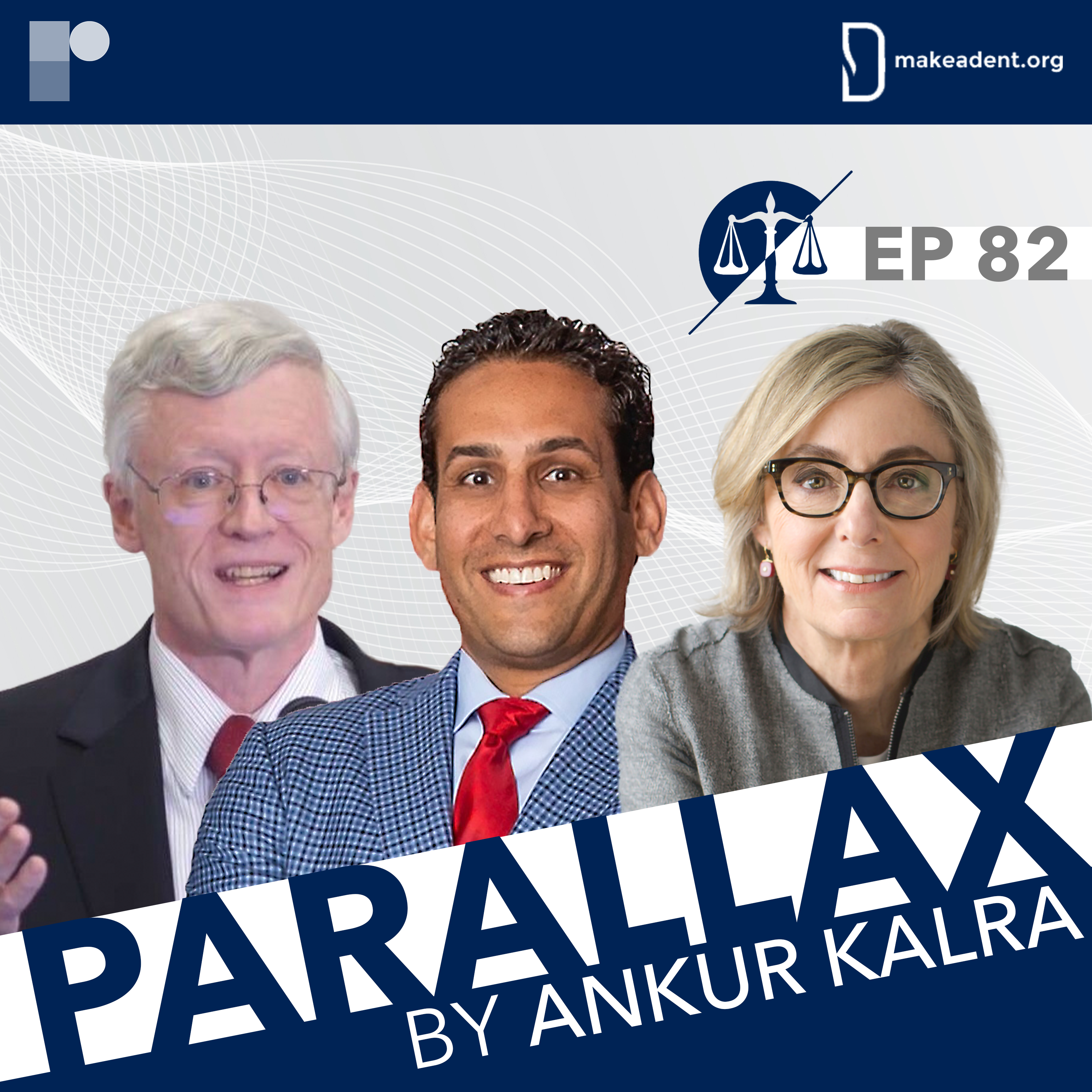
“Sham peer review or malicious peer review is defined as the abuse of a medical peer review process to attack a doctor for personal or other non-medical reasons.”
“Most doctors — warns Dr Kaki — do not understand that ultimately your privileges are not dictated by your colleagues through a fair process, but hospital administration controls our destiny”. In 2018, Dr Kaki was subject to a campaign of retaliation that set out to revoke the well-respected cardiologist’s privileges. Today, Dr Kaki is Director of Mechanical Circulatory Support at Ascension and Clinical Associate Professor at Wayne State University School of Medicine.
In this week’s Parallax Dr Kalra’s guests are the team that fought for justice in Dr Kaki’s case: Dr Lawrence R. Huntoon, Editor-in-Chief of the Journal of the Association of American Physicians and Surgeons and Deborah Gordon, employment attorney.
Dr Kaki walks us through his Kafkaesque experience and the knowledge he acquired during his battle with his former hospital. We get insight into the stages of a peer review process and the role of key stakeholders. Dr Huntoon, expert in this field, helps us put Dr Kaki’s experience in context and talks about the prevalence of sham peer reviews through shocking cases. Ms Gordon supports the discussions with practical tips and insights on the role of an attorney. Join Ankur and his guests for a must listen show on your rights as a physician.
What do you need to know about the hospital peer review process and your rights? What can you do if targeted? What is Dr Kaki’s advice to physicians?
Resource: https://shmpublications.onlinelibrary.wiley.com/doi/10.1002/jhm.12903
Stay tuned for Part 2 of Parallax’s Medico-Legal series with Dr Kalra and Dr Huntoon.
Questions and comments can be sent to “podcast@radcliffe-group.com” and may be answered by Ankur in the next episode.
Guests: @DrAmirKaki, Dr Lawrence R Huntoon and Deborah Gordon host: @AnkurKalraMD and produced by: @RadcliffeCARDIO.

What do you need to know about hospital investigations? What is the difference between OPPE and FPPE? How can you get educated on hospital bylaws and processes?



What is the Global Cardiology University project? How does Dr Anavekar encourage trainees to re-examine their role in patient care? What is his advice to our listeners?

As Dr Kalra asks Dr Rao about the ways in which early career faculty members can get involved with the organization at a state level. Dr Rao shares his insider tips and highlights key events where individuals can further their participation.
How can you get involved with your local ACC chapter? How can you improve your leadership skills? What is Dr Rao’s advice for our listeners?

He explains how the complexity of nutrition and the compounds generated by the gut microbiome can impact our health. We learn more about three compounds produced by our gut microbiome that have a strong connection with heart disease.
Through this conversation, Dr Vuyisich invites us to reframe our approach to nutrition and prevention as a question of food education and data-driven science.


This episode features a vascular neurologist and an interventional cardiologist who will discuss the relationship between their two fields of medicine.

In this rich and insightful discussion, Dr Kittleson talks about the origins of famous #kittlesonrules, a collection of tips for doctors shared on Twitter, and her thoughts on mentorship. We learn more about Mastering the Art of Patient Care. Dr Kalra and Dr Kittleson discuss strategies for managing difficult situations in patient care.

What do you need to know about hospital investigations? What is the difference between OPPE and FPPE? How can you get educated on hospital bylaws and processes?







